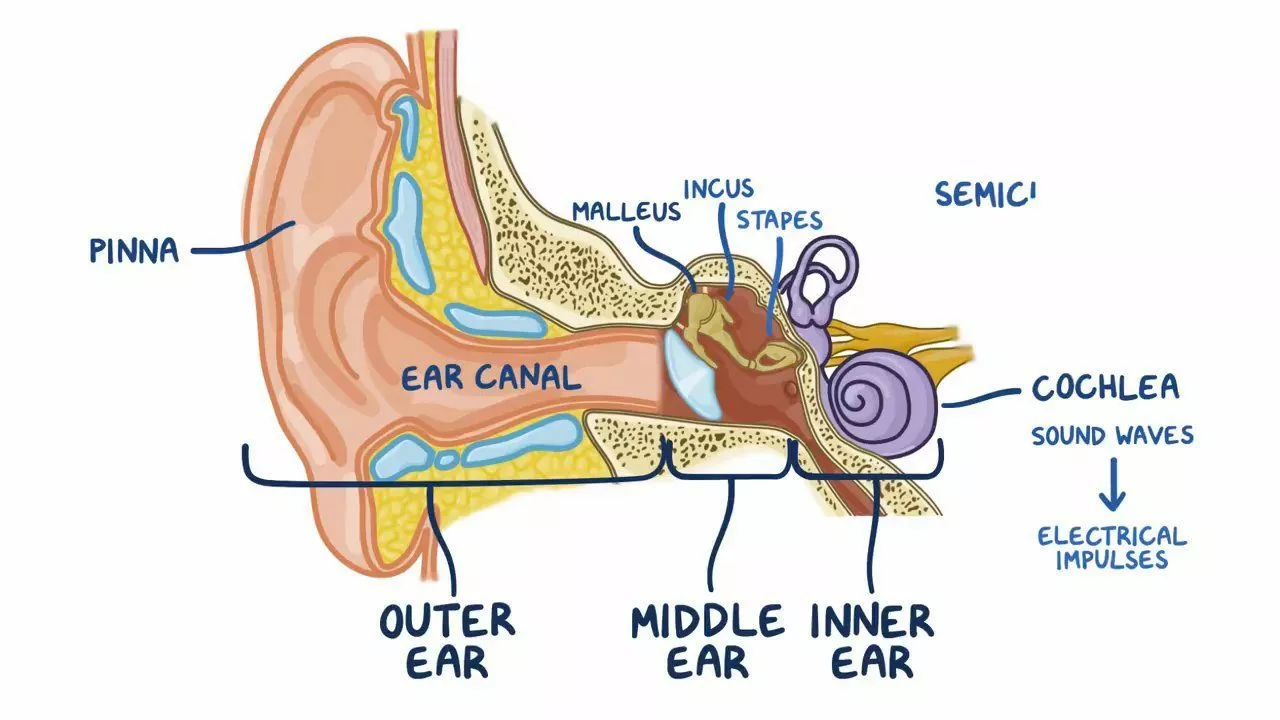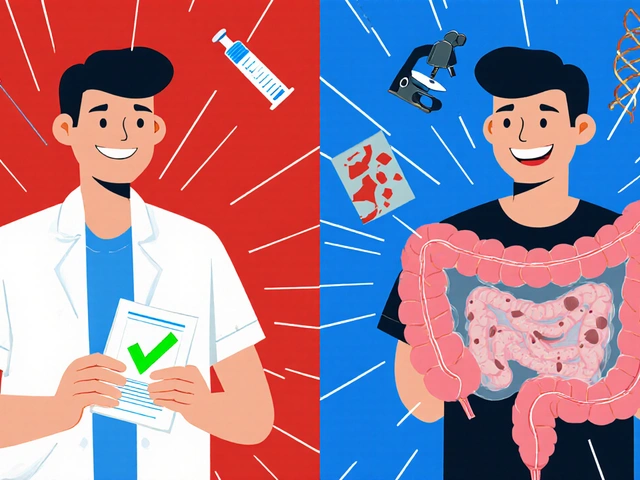
Understanding Ear Canal Infections
Before we delve into the importance of ear hygiene, it's essential to understand what ear canal infections are and how they can affect our overall health. Ear canal infections, also known as otitis externa, are inflammations or infections of the outer ear and ear canal. They can be caused by bacteria, fungi, or even allergies. The symptoms of ear canal infections can range from mild discomfort to severe pain, and may include itching, redness, swelling, and discharge from the ear.
Now that we have a basic understanding of ear canal infections, let's explore how maintaining good ear hygiene can help prevent these uncomfortable and often painful conditions.
Proper Ear Cleaning Techniques
One of the most essential aspects of ear hygiene is knowing how to clean your ears correctly. Many people believe that using cotton swabs is the best way to clean their ears, but this is actually a common misconception. Inserting cotton swabs into the ear canal can push earwax further in, potentially causing blockages and increasing the risk of infection.
Instead, you should clean your ears by wiping the outer part of your ear with a damp cloth or a tissue. If you feel that you have excessive earwax buildup, you can use over-the-counter earwax removal drops or consult a healthcare professional for assistance.
Keep Your Ears Dry
Another crucial aspect of ear hygiene is keeping your ears dry. Excess moisture in the ear canal can create an ideal environment for bacteria and fungi to grow, leading to infections. To prevent this, always dry your ears thoroughly after swimming, showering, or any other activity that may cause moisture to enter the ear canal.
Use a clean towel or tissue to gently pat the outer part of your ear dry, and if necessary, use a hair dryer on a low, cool setting to dry the area around your ear canal. Be careful not to insert anything into your ear canal while drying.
Avoid Overusing Earplugs and Headphones
While earplugs and headphones can be useful for blocking out noise or enjoying your favorite music, overusing them can negatively impact your ear hygiene. Wearing earplugs or headphones for extended periods can trap moisture and bacteria in the ear canal, increasing the risk of infection.
To maintain good ear hygiene, try to limit your use of earplugs and headphones, and make sure to clean them regularly according to the manufacturer's instructions. Additionally, avoid sharing your earplugs or headphones with others to prevent the spread of bacteria.
Protect Your Ears from Allergens and Irritants
Allergens and irritants, such as pollen, dust, and harsh chemicals, can cause inflammation and itching in the ear canal, potentially leading to infection. To maintain good ear hygiene and prevent ear canal infections, avoid exposure to allergens and irritants whenever possible.
If you know you have allergies, take steps to minimize your exposure to allergens, such as using air purifiers and regularly cleaning your living environment. When working with chemicals or in dusty environments, wear protective gear, such as earplugs or earmuffs, to shield your ears from potential irritants.
Regular Check-ups with a Healthcare Professional
It's essential to have your ears regularly checked by a healthcare professional, especially if you have a history of ear infections or other ear-related issues. A healthcare professional can assess your ear hygiene, provide guidance on proper cleaning techniques, and identify any potential issues before they become more severe.
Additionally, if you experience any symptoms of an ear canal infection, such as pain, itching, redness, or discharge, seek medical attention promptly. Early treatment can help prevent complications and ensure a quicker recovery.
Take Precautions in Public Swimming Pools
Public swimming pools can be a breeding ground for bacteria and fungi, increasing the risk of ear canal infections. To maintain good ear hygiene and prevent infections, take precautions when using public swimming pools.
Always wear a swim cap or earplugs to protect your ears from water and bacteria. Additionally, make sure to dry your ears thoroughly after swimming and avoid using cotton swabs to clean your ears, as this can push bacteria further into the ear canal.
Conclusion
In conclusion, maintaining good ear hygiene is crucial in preventing ear canal infections. By following proper ear cleaning techniques, keeping your ears dry, limiting the use of earplugs and headphones, protecting your ears from allergens and irritants, having regular check-ups with a healthcare professional, and taking precautions in public swimming pools, you can significantly reduce your risk of developing an ear canal infection and enjoy better overall ear health.









14 Comments
I appreciate the thoroughness of your guide; it's indeed a helpful reminder, especially for those of us who tend to overlook ear care!!! Keeping ears dry and avoiding cotton swabs can spare many from painful infections!!!
Thank you for compiling such an exhaustive overview; the recommendations are clear, evidence‑based, and presented with utmost professionalism. 😊
Ear hygiene often flies under the radar compared to dental or hand hygiene, yet its impact on overall health is significant.
The ear canal's delicate skin is prone to irritation when moisture or debris accumulates, creating a breeding ground for pathogens.
By adopting simple daily habits, such as gently wiping the outer ear with a damp cloth, you can maintain a natural protective barrier.
Over‑the‑counter ear drops, when used correctly, can dissolve excess wax without damaging the delicate structures inside.
Swimming enthusiasts should consider specialized ear plugs that vent while keeping water out, preventing the dreaded "swimmer's ear."
After showering, tilting the head and using a soft towel to pat the outer ear dry is more effective than inserting any object into the canal.
Regularly cleaning headphones and earphones not only prolongs their lifespan but also reduces microbial load that could be transferred to the ear.
Many people mistakenly believe that a louder volume is harmless, yet prolonged use can cause ear canal inflammation from heat buildup.
Allergens such as pollen can infiltrate the ear, especially during high‑season, so maintaining indoor air quality helps protect this often‑ignored organ.
If you have a history of eczema or dermatitis, applying a hypoallergenic barrier cream around the ear entrance can stave off flare‑ups.
Scheduling an annual check‑up with an audiologist or ENT specialist ensures early detection of wax impaction before infection sets in.
In pediatric cases, parents should educate children about gentle ear care to prevent early‑life otitis externa, which can affect hearing development.
The use of cotton swabs, while culturally ingrained, is strongly discouraged by medical experts due to the risk of pushing wax deeper.
For those prone to excessive earwax, a simple home regimen of warm mineral oil drops twice a week often suffices.
Remember that excessive cleaning can be as harmful as neglect; balance is key to preserving the ear’s natural self‑cleaning mechanism.
Ultimately, integrating these habits into your routine can significantly lower the incidence of ear canal infections and promote long‑term auditory health.
Ear care is not something that people think about until they feel a sharp pain or see a discharge but the mechanisms that lead to infection are simple the presence of moisture creates an environment where bacteria thrive this is why after swimming you should take a moment to tilt your head and let water escape also the habit of inserting objects into the ear canal is widespread yet it disrupts the natural migration of wax which normally protects the ear hence using a cotton swab can actually push wax further in causing blockages and potential infection the best approach is to keep the outer ear clean with a damp cloth and let the ear cleanse itself
Skipping cotton swabs is simply common sense.
Yo you’re spot on - cotton swabs are def a no‑go they just cause wax compaction which can lead to otitis externa Gotta keep it clean but not over‑the‑top.
I totally get how easy it is to fall into the trap of over‑cleaning, and I appreciate how you laid out practical steps; keeping the ears dry after a shower or a swim really does make a huge difference, and using a gentle wipe instead of a swab is a habit worth adopting. Your guide makes it simple to remember.
While the average reader may find the suggestions merely convenient, the scientifically literate populace must recognize that improper ear hygiene constitutes a preventable risk factor for otologic morbidity, and thus the dissemination of rigorous, evidence‑based protocols is not merely advisable but obligatory for public health advancement.
Enough with the boring health tips-real Americans know that protecting our ears is a matter of national pride! 🇺🇸💪 If you’re not drying your ears after a pool party, you’re practically inviting infection, and that’s just unacceptable!!!
Totally feel you – staying optimistic about ear health is the way to go keep those ears dry and you’ll be set 😎
One could argue that hygiene is the silent guardian of our senses, an unseen pact we make with our bodies to preserve the music of life :)
Well, the article is okay but it could have used fewer repetitions.
i think its great that u r sharing these tips i often forget to dry my ears after a swim and now i will remember :)
Oh, bravo! Another masterpiece on ear hygiene that reinvented the wheel by telling us to keep our ears dry-who would have thought? Of course the world has been waiting for this revelation, and now we can all sleep soundly knowing that a towel and a gentle pat are the ultimate weapons against otitis externa. Thanks for the groundbreaking insight; I shall immediately update my life philosophy to revolve around ear dryness, because clearly that is the pinnacle of human achievement.